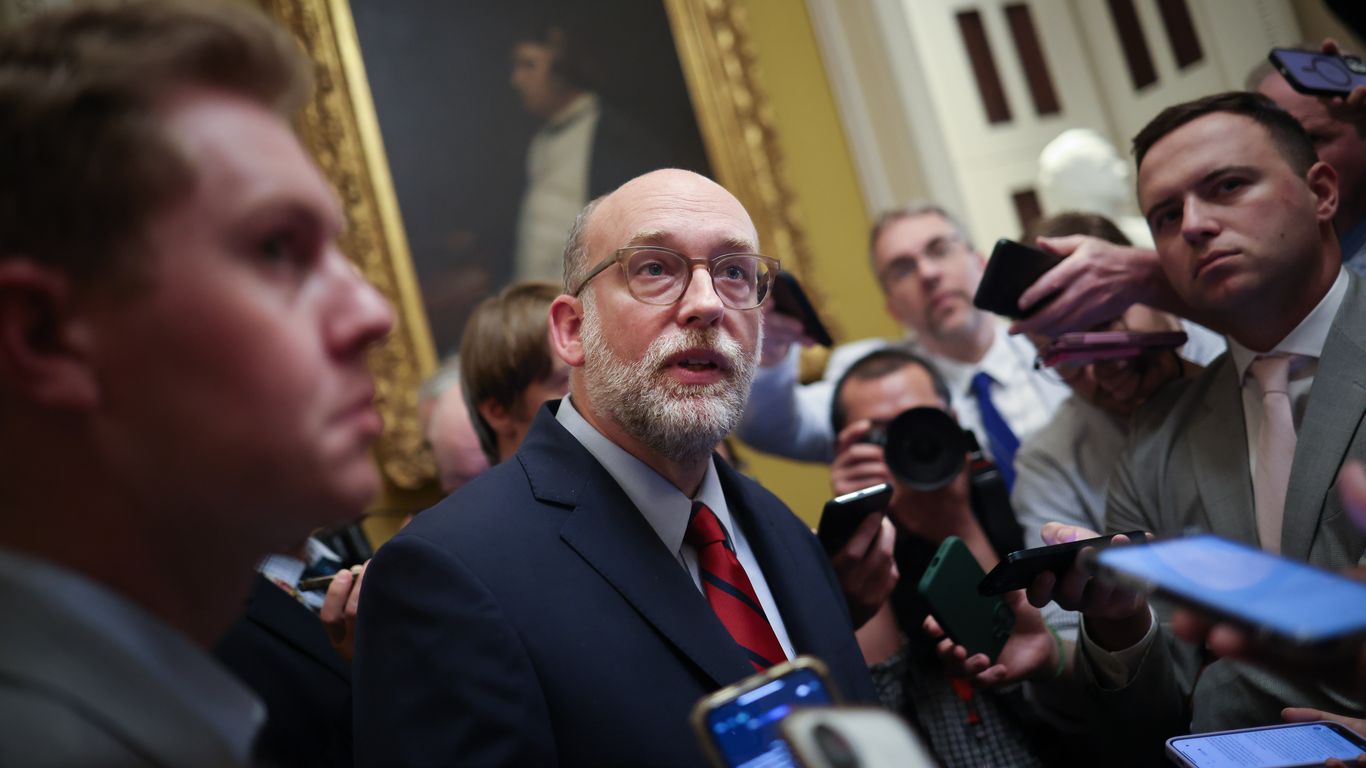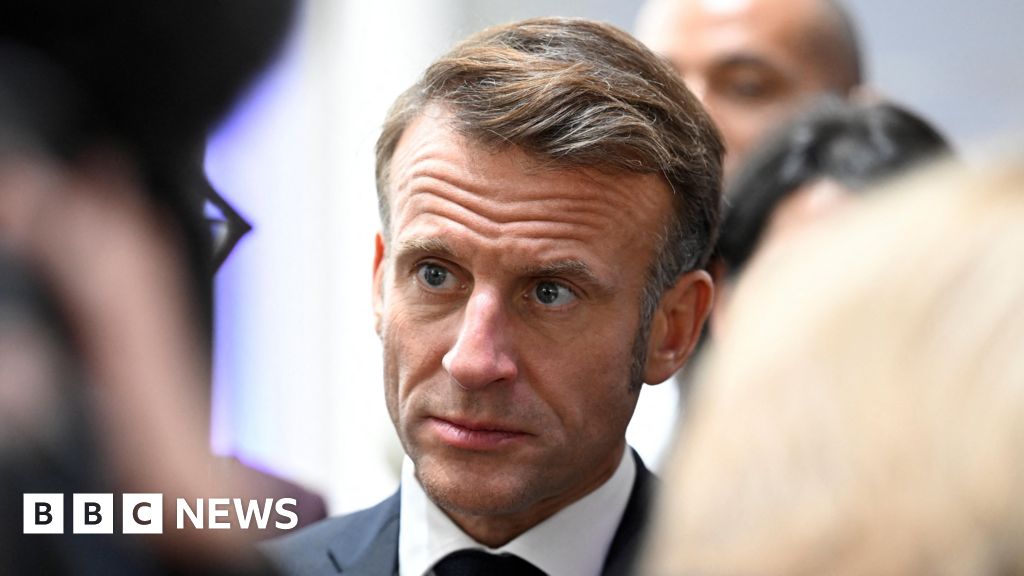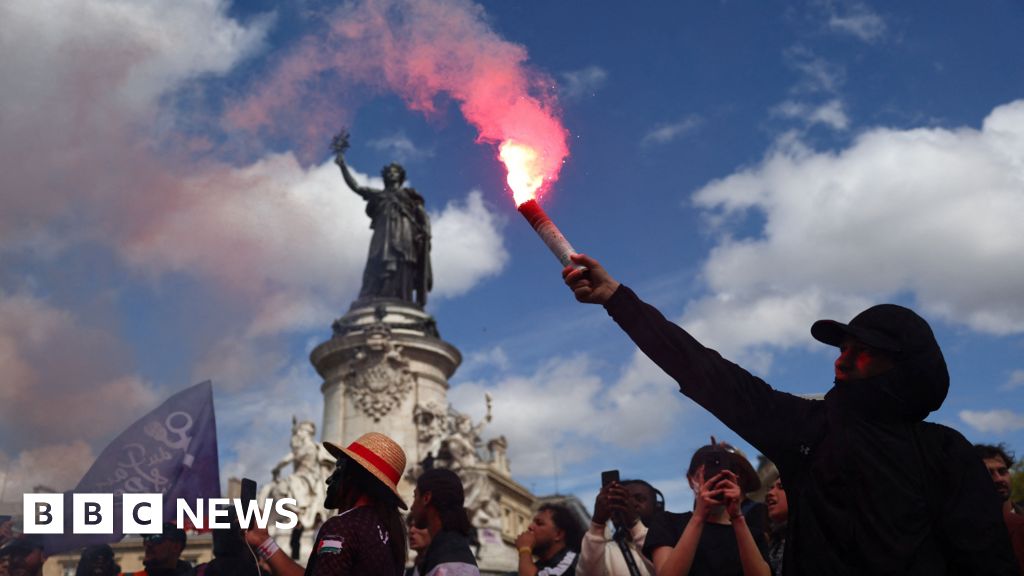France's Lecornu Survives No-Confidence Votes as Budget Battle Looms
#politics #france #budget #no_confidence_votes #european_union
Survival Amid Political Turmoil
French Prime Minister Sébastien Lecornu has narrowly survived two no-confidence votes in Parliament, securing his position by a margin of 18 votes. These votes could have toppled his fragile government amid growing political tensions and widespread opposition to recent reforms. Lecornu’s promise to suspend a controversial pension reform and avoid using the constitutional Article 49.3 helped sway enough lawmakers to reject the motions.
Challenges Ahead
With the votes behind him, Lecornu now faces the daunting task of passing the 2026 budget. This challenge comes amid a deeply divided National Assembly, where opposition parties remain vocal and determined. The budget is crucial for France’s economic stability as the European Union’s second-largest economy braces for ongoing fiscal pressures.
Political Implications
Lecornu’s survival spares President Emmanuel Macron from calling snap elections, a risky move that could further destabilize France. However, opposition parties warn that the prime minister’s hold remains precarious, signaling continued political uncertainty ahead.
About the People Mentioned
Sébastien Lecornu
Sébastien Lecornu, born on June 11, 1986, is a French politician currently serving as Prime Minister of France since September 2025. He is positioned on the right of the political spectrum, advocating Gaullist, Séguinist, and socially conservative views. Lecornu began his political career as a parliamentary assistant at age 20 and was elected mayor of Vernon, Normandy, at 28. He also served as President of the Departmental Council of Eure from 2015 to 2017. Lecornu's ministerial career spans multiple key roles: Secretary of State to the Minister of the Ecological and Inclusive Transition (2017–2018), Minister for Local Authorities (2018–2020), Minister of the Overseas (2020–2022), and Minister of the Armed Forces (2022–2025). He joined President Emmanuel Macron's Renaissance party after leaving The Republicans in 2017. Appointed Prime Minister on September 9, 2025, following the collapse of François Bayrou’s government by a no-confidence vote, Lecornu holds the record as the shortest-serving Prime Minister of the French Fifth Republic. He resigned on October 6, 2025, after just 26 days in office amid political opposition and criticism regarding his cabinet's composition and budget stance but continued as caretaker Prime Minister until his reappointment on October 10, 2025[1][2][4][5][7]. Known for his discreet yet steady rise in politics, Lecornu is the longest-serving minister in Macron’s governments, with over eight years of continuous ministerial service. His political approach emphasizes involving local authorities, notably contributing to the "Great National Debate" in 2019 addressing social unrest[2][3].
Emmanuel Macron
Emmanuel Jean-Michel Frédéric Macron, born December 21, 1977, in Amiens, France, is the current President of France, a position he has held since May 2017. He is the youngest president in French history, elected at age 39. Macron founded the centrist political movement La République En Marche! in April 2016, which won a majority in the 2017 legislative elections. Before his presidency, he studied philosophy and graduated from the École Nationale d’Administration (ENA) in 2004, worked at the Inspectorate General of Finance, and served in the banking sector. He entered politics as Deputy General Secretary of the Presidency in 2012 and was Minister for Economy, Industry, and Digital Affairs from 2014 to 2016[1][2][3]. During his presidency, Macron has implemented significant reforms including changes to labor laws, taxation, and the pension system. He has also prioritized the transition to renewable energy. His policies sparked widespread protests, notably the "yellow vests" movement from 2018 to 2020 and strikes against pension reforms. Macron managed France’s response to the COVID-19 pandemic, overseeing vaccination efforts and economic measures to address the recession[1]. In foreign policy, Macron has been active in reforming the European Union, strengthening ties with Germany and Italy, negotiating trade agreements with China amid the US-China trade war, and confronting security challenges including the AUKUS pact dispute. He has maintained France’s military efforts against ISIS and condemned Russia’s invasion of Ukraine[1]. Macron was re-elected in April 2022, marking the first French president in 20 years to secure a second term. His leadership continues to shape France’s domestic and international policies as of 2025[2][3][5].
About the Organizations Mentioned
Parliament
The **Parliament** is a fundamental democratic institution responsible for legislating, overseeing government activities, and representing citizens. It typically consists of elected representatives (such as MPs) who debate and pass laws, scrutinize government actions, and allocate public funds. Modern parliaments increasingly leverage digital technologies to enhance transparency, efficiency, and citizen engagement. Historically, parliamentary systems have evolved from traditional face-to-face deliberations to incorporating comprehensive digital infrastructures. For example, the UK Parliament has embraced ICT by providing MPs with secure email, intranet access, cloud-based productivity software, and tablet devices to replace paper documents, enabling remote work and environmental savings as part of its Digital First strategy[1]. Similarly, the Canadian Parliament expanded its use of ICT during the COVID-19 pandemic, adopting tools like Zoom for hybrid meetings and e-voting apps, along with open data portals and virtual reality experiences to boost public accessibility and engagement[2]. Parliaments worldwide face the challenge of modernizing while preserving valued traditions. Innovation involves digitizing parliamentary information (minutes, debates, bills), implementing secure digital systems for remote participation, electronic voting, and live streaming of sessions[4]. Developing digital skills among parliamentarians and staff is critical to maximize these technologies' benefits[4]. The Global Centre for ICT in Parliament supports these efforts by facilitating knowledge exchange and technical assistance globally[5]. Key achievements in parliamentary innovation include the integration of AI tools for legislative analysis, enhanced transparency through open data, and improved citizen engagement platforms[3][7]. In 2025, some legislatures, such as the House of Representatives, established specialized committees focused on AI and information technology policy, reflecting a growing recognition of digital transformation’s strategic importance[7]. Currently, parliaments are undergoing broad digital transformations, re-mapping technological landscapes to meet future business needs, improve legislative processes, and strengthen democratic institutions worldwide[6]. This ongoing evolution blends tradition with innovation to create more accessible, transparent, and effective legislatures for the
National Assembly
## Overview The term **National Assembly** most commonly refers to a nation’s legislative body, responsible for enacting, amending, and repealing laws on behalf of its citizens[1][3]. This institution is foundational to representative democracy, serving as a forum where elected officials debate and decide on national policy, distinct from regional or state legislatures[1]. The structure varies—some countries have a unicameral (single-house) National Assembly, while others, like France, feature it as the lower house of a bicameral parliament[6][8]. ## History and Evolution The concept of a National Assembly has deep historical roots, notably emerging during the French Revolution, when the National Constituent Assembly abolished feudalism and drafted the Declaration of the Rights of Man and of the Citizen in 1789, laying the groundwork for modern constitutional governance[5]. In France, the National Assembly has evolved through multiple republics, with significant reforms in the 20th century adjusting the balance of power between the legislature and the executive[4][6]. Globally, many nations have adopted similar assemblies as they transitioned to democratic governance, often during periods of revolution or reform[3]. ## Key Functions and Achievements The primary role of a National Assembly is lawmaking, but its influence extends to overseeing the executive branch, approving budgets, and representing the electorate’s interests at the national level[1][6]. Notable achievements include the abolition of feudal systems, the establishment of constitutional rights, and the creation of frameworks for accountable governance[5]. In France, the Assembly has the power to dismiss the government via a motion of no confidence, ensuring a system of checks and balances[6]. ## Current Status and Notable Aspects Today, National Assemblies remain central to democratic governance worldwide. In France, the National Assembly is elected by proportional representation and operates under a constitution that, since 1958, has strengthened the executive but retained parliamentary oversight[4][6]. The Assembl
European_Union
The **European Union (EU)** is a unique political and economic union of 27 European countries committed to regional integration, peace, and prosperity. It was established with roots dating back to the 1950s to foster economic cooperation and prevent conflict in Europe, evolving into a complex supranational organization that shapes policies in trade, environment, security, technology, and social affairs. The EU operates a **single market** allowing the free movement of goods, services, capital, and people among member states, making it one of the world’s largest economies. It develops common policies on competition, agriculture, fisheries, and regional development, and it has a shared currency, the euro, used by 20 member states. The organization also emphasizes innovation and digital transition, aiming to boost competitiveness and sustainability through initiatives like the **Green Deal** and the **Net-Zero Industry Act** to lead global climate action and technology development[1][7]. Historically, the EU has expanded from six founding members to 27, with ongoing enlargement plans targeting 35 members by 2030. It has played a critical role in post-pandemic recovery via the **Next Generation EU** fund, a €750 billion recovery package designed to rebuild economies and invest in green and digital transitions[5]. The EU also actively responds to geopolitical challenges, exemplified by its firm stance and sanctions against Russia following the 2022 invasion of Ukraine, alongside pooled military aid to Ukraine[5]. In 2025, the EU faces key challenges including balancing economic security, climate ambitions, and internal political pressures amid a changing geopolitical landscape. Its annual **State of the Union** address outlines priorities like enhancing the single market, supporting industries to decarbonize, and fostering quality jobs[3][4]. The EU is also focused on strengthening connectivity and energy infrastructure to sustain growth and digital transformation[6]. Notably, the EU remains a global actor in trade regulation and development cooperation, navigating complex relations with powers like the US and


















